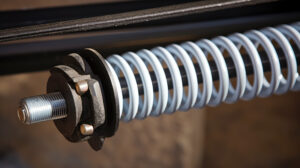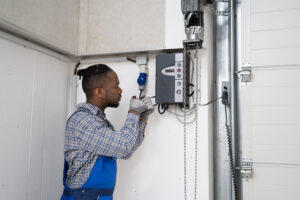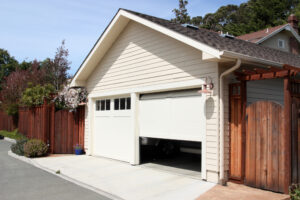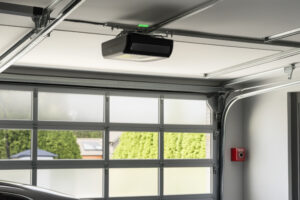Garage door spring fixing is one of the most common upkeep actions. When the springs fail, they render the door useless to the home occupants.
Unlike many other small issues, fixing faulty springs is a complex maintenance aspect.
Faulty spring fixing is one issue that should be addressed by professionals only. This article gives information regarding fixing springs and the time to call in the experts to help.
Understanding the Different Spring Types
They are generally divided into two main categories; extension and torsion. The overhead section is where you can find torsion springs and these use significant tension to facilitate the door’s movement. Though more costly than the extension type of springs, they are more durable and their maintenance requirements are minimal.
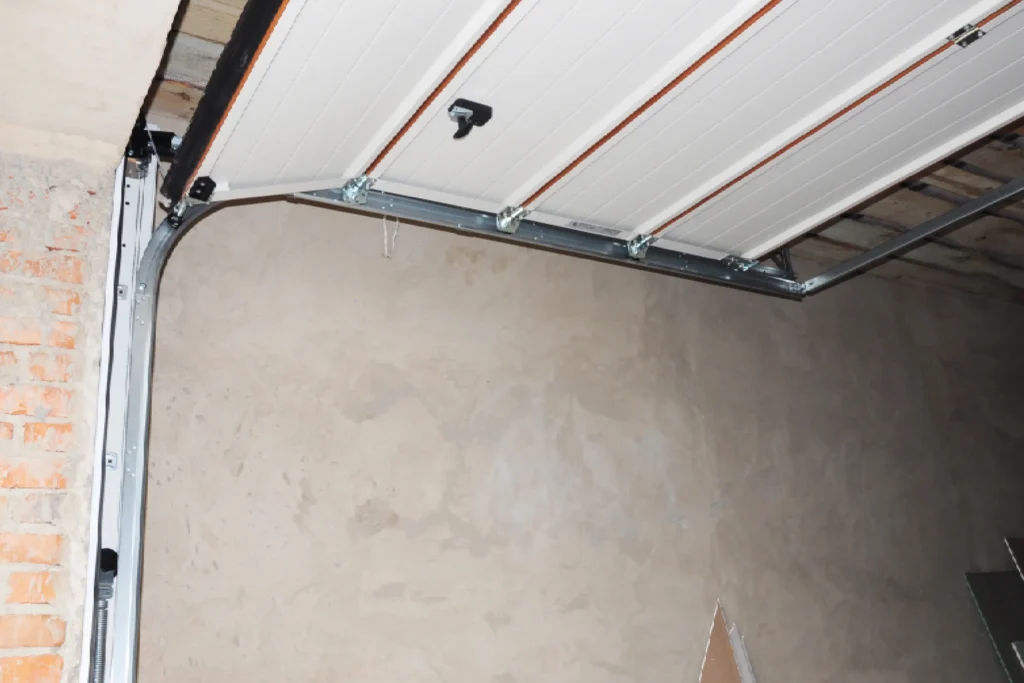
Garage Door Springs should be fixed professionally
On the overhead horizontal tracks of the two door-sides is where you can find extension springs. Upon lowering and raising the door, these springs extend and compress accordingly. In contrast to torsion springs, these ones are not as expensive, but they will require regular upkeep to achieve their optimum functionality.
Signs of Faulty Springs
Upon hearing loud squeaks, seeing big gaps, or when you have a hard time opening or closing your garage door, you should know you are operating with faulty springs. Sometimes, faults in springs can also manifest as stretched-out springs and unevenness when hanging the door. Another important factor that can give you a glimpse of a fault in the door spring is whether it has surpassed its intended lifespan.
Causes of Faults in Springs
Lack of effective upkeep, extremely high temperatures, and over-using the door, top the lineup of the causes of faults in the springs. The major cause of faulty springs lies in the wrong choice of springs. For instance, if you choose an extension spring that has less tension for a door that is too heavy it will automatically snap due to over-stretching.
When to Consider a DIY
The only time when professionals recommend a DIY maintenance is when it needs lubrication. Lack of regular lubrication of the door components means overworking when dragging the less mobile components. Lubrication also helps prevent rusting that would otherwise subject the spring to its untimely wear. As this happens, the integrity of the whole door is also compromised.
Instances That Require the Intervention of Professionals
One aspect that should never be addressed through a DIY is the fixing of springs. This is because lowering and raising of the heavy door relies on high-level tension springs. Upon torsion springs failing, the door can crush its whole weight on you. Similarly, in the event of extension springs snapping, the pieces may scatter and subject you, your loved ones and pets to serious physical injuries. Such an instance may also destroy cars, or worse still cause deaths. A study report by the CPSC shows that approximately 30,000 accidents from garage doors occur every year. It goes on to show that door-spring-related accidents account for two-thirds of 30 deaths of the 30,000 garage-door-related accidents.
When to Hire a Professional
Lack of Tools and Expertise
When you hire a professional for spring fixing, they will come with all manner of tools and specialized equipment to use in the dangerous works. Since you do not have access to such equipment, you should always contact professionals to fix issues relating to springs.
Further Damage to Components
Lack of the necessary expertise exposes your safety to the lingering risks of physical injuries. Other than that, fixing springs through a DIY compromises the lifespan of the door due to further damage of not just the spring but also other door components.
Spring Replacement
Having seen that spring fixing is a highly dangerous task to attempt through a DIY, now imagine what amount of risk a DIY replacement would put you in. Broken or too old door springs all point in one direction; it is time to do some replacements. Since you lack the required tools and expertise, let the professionals deal with the fixing.
Due to the sensitivity that comes with fixing springs, it is highly recommended to hire an adequately experienced and licensed professional. An inadequately qualified and inexperienced professional will deliver half-baked results while at the same time compromising the integrity of other door components. To get a great professional, be sure to evaluate their customer feedback and ratings, insurance and other industry certifications. This is the only way to ensure you get a great service, and that everything will be fixed as you wanted.

